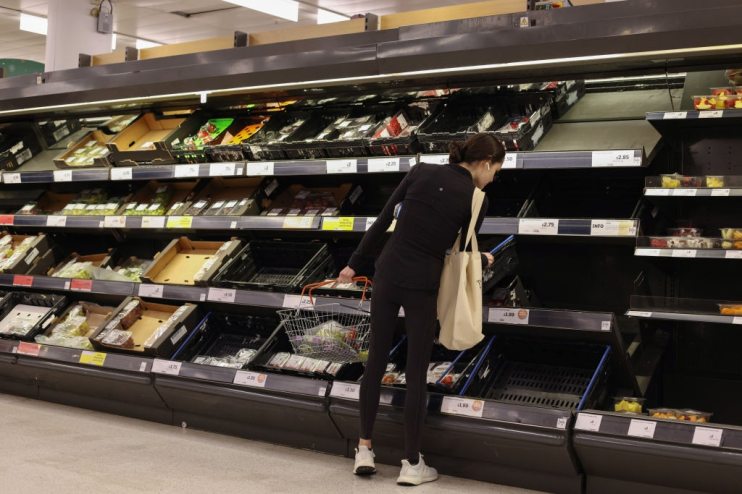As bills go up, we need to brace for a pretty chilly winter in the UK

As usual, Destiny’s Child was right. Bills, bills, bills, as the iconic girl group put it, put friction into our relationships and left us acting dumb. This winter they’re going up.
As inflation starts to bite we’re going to find it tougher to make ends meet. From groceries to energy, the cost of everything is set to soar. What we need to know is—how long will this last?
Inflation is called the silent killer and the risks around it have gone up. Creeping rises one day, followed by sudden bursts that leave us all poorer.
We’re seeing some effects already. Fuel is at an eight-year high but you won’t need it anyway because a shortage of semiconductors means the price of a secondhand car is about 15 per cent higher than last year.
Rents are edging up in cities, with London up around 7.6 per cent higher compared to last year, widening the divide between homeowners and the young renters watching the rungs of the property ladder slip further out of sight, but not out of mind.
Even chickens are going up as the UK’s biggest poultry supplier has warned prices of food may jump more than 10 per cent. The CEO of Kraft Heinz has warned that we’re all going to have to get used to higher food prices because the price of basic food commodities is rising everywhere.
The Build Back Better slogan, with its echoes of LBJ’s Great Society or Roosevelt’s New Deal, has convinced many of us that state funds will keep our economic growth chugging along. But the rest of us have been left to wonder if the Bank of England will take the booze away now the party has started, in the form of higher interest rates, expected in December.
And then some of it comes down to us: as we switch from an economy driven by low wage, migrant labour, we are going to need time to rebalance.
But most of this is out of our control. In the US inflation is up 5.4 per cent in a year, in Germany it is 4 per cent, and the hangover of the pandemic is causing supply chain disruption in ports as the cost of shipping has soared.
Globalisation has connected us all and lowered prices, but it has also bound us together. Droughts in Brazil or this year’s poor rubber harvest in southeast Asia mean price hikes on Britain’s high street.
The Bank of England has predicted inflation will hit 4 per cent by the end of the year. That’s eating into incomes and savings across the country. If prices are rising faster than wages, the pinch comes earlier each month.
Already, many find it hard to make ends meet.
Before the pandemic, almost a third of Brits had less than £600 in savings. That’s not much of a buffer, especially as it gets eroded by rising costs.
As is so often inescapable, we’re seeing history repeat itself – assets are rising, earnings falling and gaps are widening. We can’t risk another runaway decade.
Bringing balance back and hitting the Bank’s 2 per cent target will be tough because few are exactly sure what will happen. No one has ever tried to stop a quantitative easing programme that has pumped trillions into the world’s biggest economies. Will it allow a graceful landing or will we come down hard?
And while we’re talking about risk, will the spending we’re seeing after we’ve been released ease, or will the rates stay high? No one knows. But if we don’t react, we know where this could lead and what would be needed to get out of it – that dreaded word that starts with an A.
One lesson from past inflationary bubbles is that confidence matters.
To stop the balloon rising, you need to trust your political leaders – not just the central banks.
So many of our past policies have been washed away by waves of new spending, each coming with a thundering crash like a fresh shot at the start of a party about to turn wild.
As we set in for what could be a long winter for those who are just starting to get back on their feet from the pandemic, it may be our destiny to feel the chill.